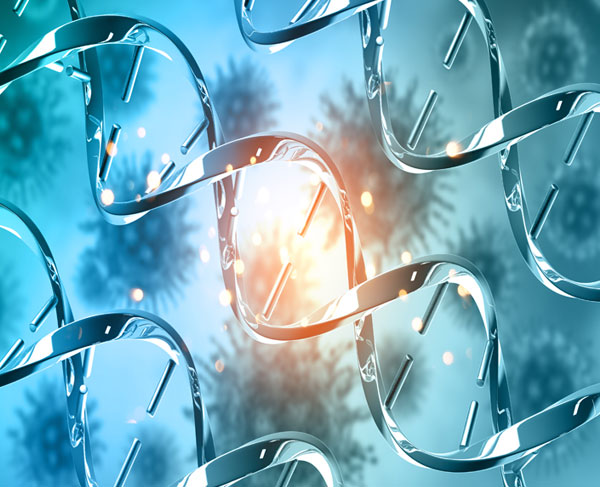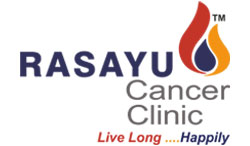Cancer Types
- Bladder Cancer
- Bone Cancer
- Breast Cancer
- Cervical Cancer
- Colorectal Cancer
- Endometrial Cancer
- Head & Neck Cancer
- Kidney Cancer
- Laryngeal Cancer
- Leukaemia
- Liver Cancer
- Lung Cancer
- Multiple Myeloma
- Nasopharyngeal Cancer
- Non-Hodgkin's Lymphoma
- Oesophagus Cancer
- Oral Cancer
- Ovarian Cancer
- Pancreatic Cancer
- Prostate Cancer
- Skin Cancer
- Stomach Cancer
- Testicular Cancer
- Thyroid Cancer
Opening Hours
- Monday - Saturday 10:00 am - 7.00 pm

Nasopharyngeal Cancer
- Nasopharynx cancer is uncommon in Indian sub-continent except for NE region of the country. In India incidence of cancer of the oral cavity and other parts of pharynx is high compared to nasopharynx cancer.
- Nasopharyngeal cancer is ranked 24th most probable cancer in the world and amounts to 0.71% of the total annual cancer patients.
- The death rate is about 0.76% and 5- year survival rate is 4.75%.
- The rates are twice as high in males as in females.
- However, the incidence of the disease is higher in certain population and geographical regions of the world.
- Types of Nasopharyngeal Cancer
– Angiofibromas and hemangiomas involve the blood vessels.
– Tumors that develop in the lining of the nasopharynx, including the minor salivary glands.
Causes
- Smoking cigarettes.
- Drinking alcohol.
- Chewing tobacco.
- Genetic factors.
- Pre-cancerous conditions.
Specific carcinogenic factors with sufficient evidence
- Epstein-Barr virus.
- Formaldehyde Salted fish.
- Chinese-style Tobacco smoking.
- Wood dust.
Specific carcinogenic factors with limited evidence
- Studies show very little evidence to show limited risk of this cancer.
Signs and Symptoms
- Lump or mass in neck which is painless and not tender.
- Hearing loss.
- Ringing in ear or fullness of ear (especially on one side of ear).
- Recurrent ear infections.
- Bleeding from nose.
- Headache.
- Facial pain or numbness.
- Blurred vision or double vision.
- Trouble in opening mouth etc.
Investigations / Screening
Diagnosis of Nasopharyngeal cancer is done by clinical examination of lumps in the neck, symptoms, along with :
- Physical examination and history.
- Biopsy – Diagnosis of this cancer is done by fibre optic endoscopy, fine needle aspiration (FNAC)/core biopsy of any mass.
- PET scan/MRI/CT scan to assess the extent spread and size of growth.
- Chest X-Ray to check if it has spread of disease in lungs.
- Biomarkers investigation.
- Nasoscopy / Upper Endoscopy – these are tests done with a nasoscope or an endoscope in order to observe the mass / growth and identify the bleeding sites if any.
- Hearing Test / Audiometry – is done to see if the patient’s hearing is affected by the spread of the cancer.
Treatment
- To plan personalised treatment for each individual patient as every individual is different even if they have the same type of cancer.
- To improve health related quality of life (QOL) in all types and stages of cancer patients.
- To plan for partial or total regression of tumour depending on the nature of tumors.
- To increase overall survival (OS) of patients.
- To increase disease free survival (DFS) where complete resection of tumour is achieved.
- To provide a treatment option to patients who are refractory to conventional treatments like chemotherapy / radiotherapy / immunotherapy etc.
- To reduce the rate of growth of the tumor in recurrent and advanced staged cases.
- To increase progression free survival in advance cases.
- To reduce impact of symptoms related to progression of disease.
- To improve confidence of patients.
- To provide palliative support in end-of- life cancer cases.
- To add happiness and extension of life to cancer patients.
- To compliment other therapies like chemotherapy, radiotherapy in a synergistic way.
- To reduce severity or adverse effects of other conventional treatment. This reduces incidence and frequency of hospitalization.
- It is pertinent to note that Rasayu Cancer Clinic does not claim or blame anything while communicating any aspect to cancer patients.
- Rasayu Cancer Clinic focuses on Ayurveda fundamental based therapies.
- Rasayu Cancer Clinic believes in continuous improvement in service and science.
- Rasayu Cancer Clinic always advocates patient centric approach which leads to long and happy life of cancer patients.
- Every patient has a right to choose the therapy.
- Rasayu Cancer Clinic never imposes Rasayana therapy on patients but helps them to take the right decision, hence making patients/ relatives well aware about the disease and possible outcomes along with its risk benefit and cost benefit ratios.
- Rasayu Cancer Clinic is well connected with global updates in cancer care and therapies, through advisors and collaborations with national and international institutes.
Treatment options are surgery, radiotherapy, chemotherapy or a combination of these. Selection of treatment depends on various disease related factors like disease site, stage, anatomical accessibility of the tumor and overall wellbeing of the patient.
Surgery
- Surgery is often used to remove the lymph nodes.
- Removal of lymph nodes depends on the spread of the disease.
- Partial neck dissection in which lymph node closer to primary tumor are removed.
- Modified radical neck dissection removes lymph nodes on one side.
- Radical neck dissection removes nearly all lymph nodes.
- Side effects of neck dissection – Click Here
Chemotherapy
- Chemotherapy is the use of drugs to destroy cancer cells, usually by keeping the cancer cells from growing, dividing, and making more cells.
- Although chemotherapy is useful for treating many types of cancer, most cases of kidney cancer are resistant to chemotherapy.
- The side effects of chemotherapy depend on the individual and the dose used, but can include fatigue, risk of infection, nausea and vomiting, hair loss, loss of appetite, and diarrhoea and they usually go away after treatment is completed.
- Chemo agents like 5-flurouracil, cisplatin and methotreaxate can produce high response rates, however responses tend to be short lived.
- Regrowth is often rapid and there is no evidence to show any survival benefit.
- Chemotherapy in the neoadjuvant setting and concurrent with radiotherapy along with newer agents are the subjects of current clinical trials.
- Myelosuppression and mucosites are the most common side effects of this chemotherapy.
- Side effects of Chemotherapy – Click Here
- Adverse drug reactions (ADRs) of Chemotherapy – Click Here
Radiation Therapy
- It can be used as the primary treatment or in the adjuvant postoperative setting. Indications and technique depend on anatomical location of the tumor.
- The major potential advantage of this therapy is functional preservation, particularly of speech and swallowing.
- Acute skin reactions mucosites are more common side effects of radiotherapy.
- Side effects of Radiotherapy – Click Here
Rasayu Cancer Clinic Rasayan Treatment Protocol – To know more please click here
Rasayu Therapy is recommended for those :
- Who voluntarily opted for this treatment as their first choice.
- Who are disenchanted with the past treatments.
- Who do not see any other options of treatments.
- Who are looking for personalized treatment plan.
- Who desire a convenient home-based oral therapy which is easy for consumption?
- Who are susceptible to acquire hospital borne infections/ complications, hence not willing to be hospitalised.
- Who are looking for favourable risk benefit ratio.
- Who desire to improve Quality of Life benchmarks based on global standards and monitored regularly.
- Who wants to be involved in decision making for choice of treatment.
- Who are willing to be involved in monitoring the efficacy of Rasayana Therapy.
- Who believe in the transparency of the process by conducting regular investigations by biochemical parameters/ hi tech imaging techniques like PET scan etc.
- Who are looking for professionals being sensitive to the patient, the care givers and the family.
- Who desire to take even with other treatments including Chemotherapy / Radiotherapy.
Disclaimer : This Website contains certain links such as You Tube links, research paper links / website links / audio visuals / internet information already available in public domain. The information contained in the audio visuals is meant for use by qualified Medical Professionals. The content of the links etc has been made available for informational and educational purposes only. Rasayu Cancer Clinic and its associates do not make any warranties with respect to the accuracy, applicability, fitness, or the completeness of the content of such links etc. The information contained in such links represents the views and opinions of the original creator of such links and are not views endorsed by the Rasayu fraternity.


